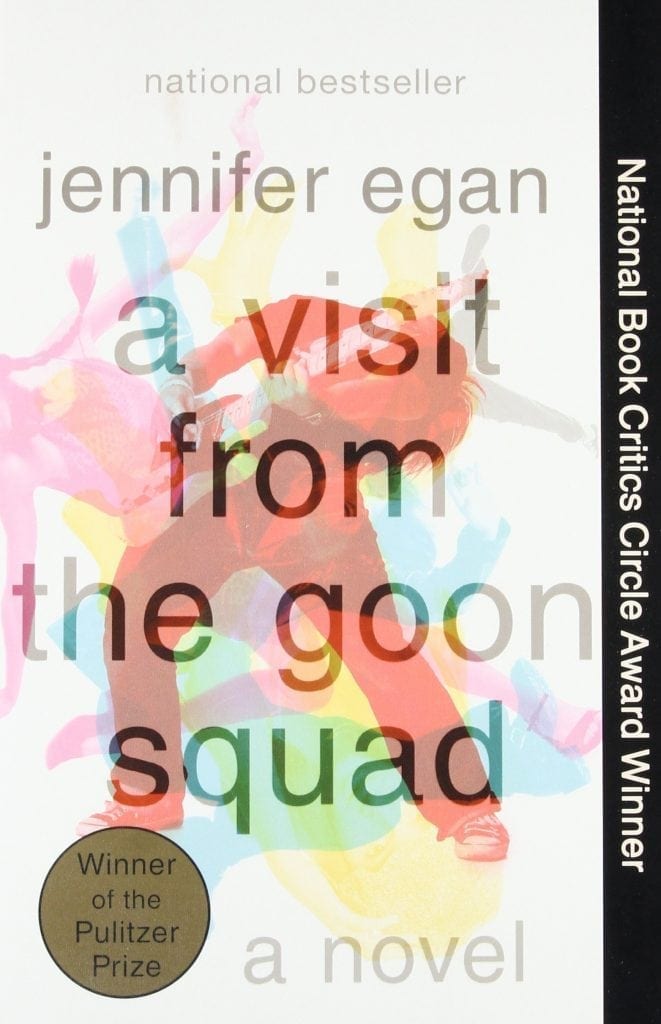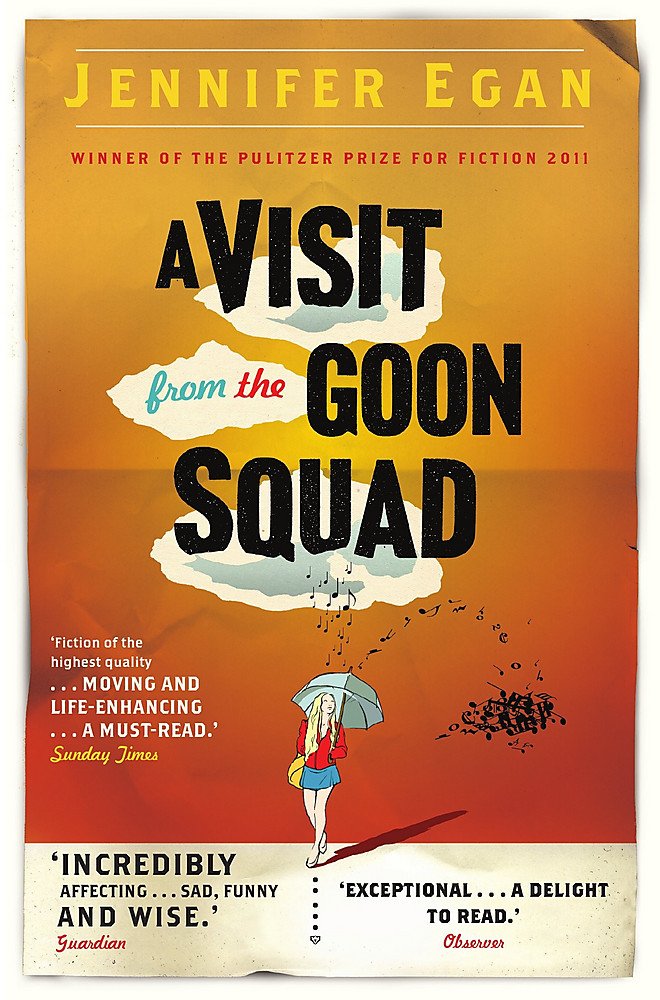


She also shifts dramatically across times and places: punk teenagers in 1970s San Francisco become disillusioned adults in the suburbs of 1990s New York their children grow up in an imagined, slightly dystopic future in the California desert, or attend a legendary concert at "The Footprint", where the Twin Towers used to be, sometime in the 2020s. Characters who are marginal in one chapter become the focus of the next the narrative alternates not only between first-person and third-person accounts, but – perhaps just because she can – Egan throws in a virtuosic second-person story as well, in which a suicidal young man tells his tale to a colloquial "you".

It is one character's name for time: "Time's a goon, right? You gonna let that goon push you around?" Everyone in the book is pushed around by time, circumstance and, occasionally, the ones they love, as Egan reveals with great elegance and economy the wobbly arcs of her characters' lives, their painful pasts and future disappointments. The "goon squad" of the title is not itself a reference to The Sopranos: there are no mobsters here. This is a difficult book to summarise, but a delight to read, gradually distilling a medley out of its polyphonic, sometimes deliberately cacophonous voices. It is neither a novel nor a collection of short stories, but something in between: a series of chapters featuring interlocking characters at different points in their lives, whose individual voices combine to a create a symphonic work that uses its interconnected form to explore ideas about human interconnectedness. That shouldn't make sense but it does: Goon Squad is a book about memory and kinship, time and narrative, continuity and disconnection, in which relationships shift and recombine kaleidoscopically. Egan has said that the novel was inspired by two sources: Proust's À la Recherche du Temps Perdu, and HBO's The Sopranos. The book received rave reviews when it was published in the US last year, and for good reason it has since been named a finalist for several prestigious American prizes.

T he title of Jennifer Egan's new novel may make it sound more like an episode of Scooby-Doo than an exceptional rendering of contemporary America, but don't be fooled.


 0 kommentar(er)
0 kommentar(er)
